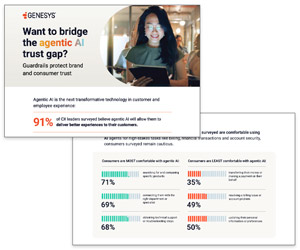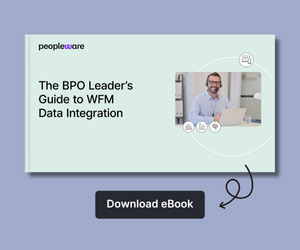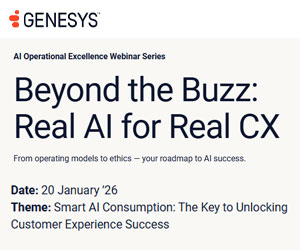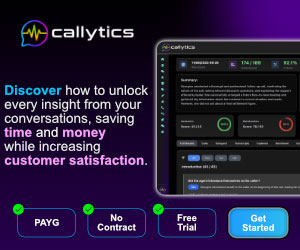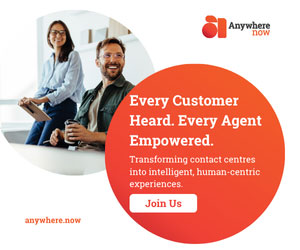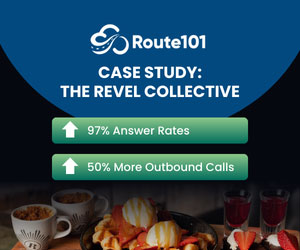Ryan Black from Genesys has outlined each generation’s preferences and explained how operators can provide the necessary service and service type to achieve desired outcomes for both operators and customers.
In today’s society, we can identify four distinct generations of consumers and workers, each characterised by their unique values, expectations and preferences.
Thanks to the emersion of online gaming, consumers now have access to a wide range of brands from around the world. As a result, it’s harder than ever to win loyalty from customers – and easier to lose it. In this environment, what increasingly sets operators apart is the overall experience they provide.
Expectations for customer service within the gambling industry significantly differ across various generational cohorts, including Gen Z, Gen X, Baby Boomers and Millennials. These differences arise from their distinct preferences, technological proficiency, and communication styles.
Gen Z
Digital Natives: Gen Z, born between the mid-1990s and early 2010s, have grown up with technology. They expect seamless digital interactions and prefer platforms that offer mobile-friendly interfaces and quick access to customer service through chatbots and social media.
Personalisation and Speed
This group values quick and efficient service. They expect personalised experiences, instant responses and solutions via live chat and messaging apps.
Gamification of the service experience, such as loyalty programs and interactive support, is also highly appreciated.
Transparency and Social Responsibility
Gen Z is highly aware of social issues and expects companies to demonstrate transparency and social responsibility.
They prefer brands that show commitment to responsible gambling practices and provide clear information about the risks associated with gambling.
Self-Service Options
Gen Z appreciates self-service options such as comprehensive FAQs, forums, and video tutorials that allow them to solve issues independently without contacting support.
Millennials
Tech-Savvy and Mobile-Oriented: Born between 1981 and 1996, millennials are comfortable with digital technology but also value human interaction.
They expect efficient, mobile-friendly customer service but still appreciate the option to speak with a live agent.
Omnichannel Support
Millennials expect seamless service across multiple channels, including email, phone, live chat and social media.
They appreciate their customer service history being maintained across these channels, allowing for a smooth transition and continuous service.
Value for Money and Rewards
This generation looks for value and expects brands to offer loyalty programs, bonuses and rewards for their patronage.
Clear communication regarding these programs and easy access to support for related queries are essential.
Responsible Gambling Support
Similar to Gen Z, Millennials value transparency and responsibility from gambling operators. They appreciate proactive measures such as self-exclusion options and support for problem gambling.
Gen X
Pragmatic Adopters: Generation X, born between 1965 and 1980, has distinct customer service expectations in the gambling industry that reflect their unique blend of technological adoption and traditional values. Here are the key expectations:
Efficiency and Convenience
Gen X values quick and efficient service. They appreciate user-friendly interfaces and seamless experiences across online and offline platforms. They expect quick resolutions to their issues without unnecessary delays.
Personalisation
Personalised service is crucial. Gen X expects gambling platforms to recognise their preferences and tailor offerings accordingly. They appreciate personalised promotions, recommendations, and communication.
Reliability and Security
Trustworthiness is paramount. This generation values reliable and secure platforms with transparent policies regarding data privacy and fair play. Clear communication about security measures enhances their trust.
Baby Boomers
Personal Interaction: Baby Boomers, born between 1946 and 1964, tend to prefer more traditional forms of customer service, such as phone support and face-to-face interaction.
They value personalised attention and are more likely to appreciate a human touch in their service interactions.
Clarity and Simplicity
This generation prefers straightforward and clear communication. They value detailed explanations and step-by-step guidance over quick, brief responses.
Written communication, such as detailed email support and comprehensive instructions, is often preferred.
Trust and Security
Baby Boomers prioritise security and reliability. They expect robust measures to protect their personal and financial information and appreciate regular updates about the safety of their accounts and transactions.
Accessibility
Ease of use and accessibility are crucial for Baby Boomers. They prefer intuitive interfaces and easy-to-navigate websites.
When issues arise, they appreciate patient and understanding customer service representatives who can guide them through the resolution process without technical jargon.
Catering to a Diverse Audience
Understanding these generational differences is crucial for gambling operators aiming to cater to a diverse audience.
By tailoring support strategies to meet varied needs, operators can enhance user satisfaction and loyalty across all age groups.
Experience Orchestration with a Cloud Platform
Experience orchestration aims to create efficient, effective and empathetic customer experiences, regardless of the customer persona or their preferred communication channel.
Gen Z has shown a strong inclination towards self-service options, often favouring automated solutions over speaking with customer service agents.
To cater to this trend, operators can utilise the combination of a knowledge base and advanced generative and conversational AI capabilities to establish and maintain a fully automated contact centre.
Leveraging the orchestration engine, a platform can gather real-time customer data from various engagement systems and external applications through its open-API architecture.
This enables it to accurately ascertain the customer’s intent and determine the most appropriate next steps to facilitate successful self-service interactions.
Millennials are alike in some ways, but different in others. As a Millennial myself, I can confirm this. For a minor, non-urgent request, I’m okay with using digital bots and looking through self-service articles.
However, if it’s a high-priority issue, I prefer speaking to someone who understands my problem and can fix it quickly!
This is the point at which the orchestration engine is able to once again ascertain the customer’s intent and identify the necessity for engaging with an agent.
Through the utilisation of AI-powered predictive routing, it can not only direct the interaction to a designated queue but also to a specialised agent capable of appropriately addressing the interaction with a comprehensive understanding of the customer’s issue.
As we move forward through generations, we come to Gen X. In my personal experience, I believe that this generation’s approach to technology adoption varies from one extreme to the other.
For instance, my parents both belong to Gen X. To give you some context, my father-in-law, when going on holiday, prefers to have his boarding pass printed and placed in a wallet before a trip, along with a meticulously planned itinerary for the week.
On the other hand, my dad would opt for an e-ticket and feel comfortable using his mobile to access maps or the web to find places he wants to go.
For the gambling sector, it’s crucial to recognise that not all Gen X individuals are comfortable with digital channels.
This is where omnichannel capability proves invaluable, ensuring consistent service across all customer touchpoints, regardless of the engagement channel.
Finally, let’s talk about Baby Boomers. We’ve all had a grandparent call us for help with downloading an app, accessing online banking, or even calling through WhatsApp instead of using their regular phone network (at least I have!).
This illustrates the challenges they may face when dealing with fully digital contact centres, especially when their business still contributes a significant revenue share.
It’s important to note that a lack of tech-savviness on the customer’s part shouldn’t hinder a business from utilising AI to better serve them.
By using Generative AI services like Agent Copilot, calls can be transcribed in real-time while also identifying the customer’s intent.
This information is then used to suggest the best next steps to the agent, ensuring a smooth and satisfactory interaction.
Empathy in Action
Regardless of different contact preferences, all generations share a common desire to interact with a trustworthy operator who can support them efficiently and help them feel valued and connected.
This is empathy. Empathy involves the human ability to listen and understand someone’s situation while treating them with respect. It fosters unity among people, companies, and society.
Empathy makes customers feel acknowledged and understood, which in turn builds trust and loyalty. In the age of personalisation, empathy is the driving force in winning customer loyalty. Ultimately, customer loyalty fuels growth.
Journey Orchestration
Segmenting players based on generational characteristics is a key strategy for online gambling operators to keep players engaged.
This involves categorising players according to their unique traits, allowing operators to provide tailored experiences for each player when they interact with the brand.
Operators can use Customer Journey Management to orchestrate player experiences and create personalized journeys for different player segments.
This approach goes beyond traditional personalization techniques by utilizing customer journey data from all channels, sources, and systems.
This ensures that every interaction with the brand reflects the customer’s entire experience, not just the current interaction.
Each customer touchpoint is personalized based on the customer’s preferences and needs. By understanding customer intent and previous experiences, operators can guide customers towards their goals with every interaction.
The benefits of this approach are extensive. It enables operators to personalise customer experiences, align their technology to deliver desired experiences and reduce the cost of service.
This is achieved by proactively resolving issues, increasing self-service rates, minimising unnecessary channel switches and repeat calls, and significantly improving efficiency.
Additionally, it assists in directing customers to the best agent based on their intent and behaviour and provides valuable insights into customers’ previous actions.
Conclusion
After conducting thorough research, the findings strongly emphasise the critical need for a holistic approach when addressing generational dynamics in CX strategies for operators on a global scale.
It is becoming increasingly evident that individuals now expect and demand personalised experiences that not only meet their unique needs but also make them feel genuinely supported and valued.
Fulfilling these evolving consumer expectations is pivotal for any organisation’s success. By leveraging appropriate technology and integrating an empathetic and human-centric approach, companies can effectively differentiate themselves in the market.
I genuinely hope that you will find these insights valuable and applicable to your efforts in delivering exceptional experiences for your customers.
This blog post has been re-published by kind permission of Genesys – View the Original Article
For more information about Genesys - visit the Genesys Website
Call Centre Helper is not responsible for the content of these guest blog posts. The opinions expressed in this article are those of the author, and do not necessarily reflect those of Call Centre Helper.
Author: Genesys
Published On: 6th Aug 2024 - Last modified: 22nd Oct 2024
Read more about - Guest Blogs, Genesys




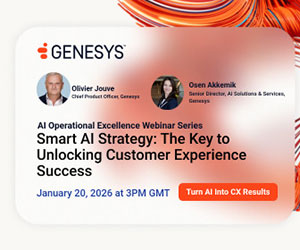

 Genesys empowers more than 8,000 organisations in over 100 countries to improve loyalty and business outcomes by creating the best experiences for their customers and employees. Through Genesys Cloud, the AI-Powered Experience Orchestration platform, Genesys delivers the future of CX to organisations of all sizes so they can provide empathetic, personalised experience at scale. As the trusted platform that is born in the cloud, Genesys Cloud helps organisations accelerate growth by enabling them to differentiate with the right customer experience at the right time, while driving stronger workforce engagement, efficiency and operational improvements.
Genesys empowers more than 8,000 organisations in over 100 countries to improve loyalty and business outcomes by creating the best experiences for their customers and employees. Through Genesys Cloud, the AI-Powered Experience Orchestration platform, Genesys delivers the future of CX to organisations of all sizes so they can provide empathetic, personalised experience at scale. As the trusted platform that is born in the cloud, Genesys Cloud helps organisations accelerate growth by enabling them to differentiate with the right customer experience at the right time, while driving stronger workforce engagement, efficiency and operational improvements. 




